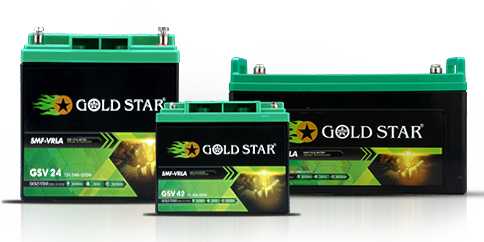As the global shift toward clean energy accelerates, solar panels are emerging as a powerful and eco-friendly solution for homeowners and businesses alike. Not only are they sustainable, but they also offer long-term cost savings on electricity. However, the overall performance of a solar energy system depends on several influencing factors. Being aware of these elements can help you make the most of your solar investment.
Gold Star, a trusted solar battery manufacturer in Uganda, delivers high-performance solar batteries that enhance energy storage and system reliability. While batteries play a vital role, it’s essential to understand how various conditions impact solar panel efficiency as a whole.
1. Panel Positioning and Tilt Angle
How solar panels are angled and positioned directly affects how much sunlight they absorb. Ideally, panels should face true north in the Southern Hemisphere (like Uganda) for optimal exposure. Seasonal adjustments and geographic considerations are key in maintaining maximum output. Improper orientation can lead to significant energy losses.
Professional installation and occasional angle adjustments can improve solar yield and system efficiency.
2. Shadows and Surrounding Barriers
Shading is a common but serious barrier to solar panel performance. Whether it’s nearby trees, walls, or buildings, any shade can limit sunlight access and reduce power generation. Even partial shading can disrupt the flow of electricity across the panel surface.
Regularly inspecting and trimming surrounding foliage or obstacles helps panels receive uninterrupted sunlight.
3. Climate, Temperature & Weather Impacts
While solar panels harness sunlight, excessive heat can actually reduce their efficiency. High temperatures increase internal resistance, causing a drop in energy output. Cooler weather with clear skies is often ideal for solar panel performance.
Also, rainy or cloudy conditions may temporarily lower electricity generation, but do not halt production altogether.
4. Maintenance & System Aging
Solar panels experience a gradual drop in performance over time—typically around 0.5% to 1% per year. However, regular cleaning and maintenance can delay degradation. Dust, bird droppings, or leaves can block sunlight and should be removed periodically.
It’s also wise to schedule professional inspections to detect issues early and ensure optimal functionality.
5. Quality of Equipment
Not all solar panels are made equal. Investing in high-efficiency, premium-grade panels and batteries significantly improves long-term results. Gold Star, a leading solar battery manufacturer in Uganda, provides solar components built for durability and high performance, even in challenging weather conditions.
A high-efficiency rating ensures your system produces more energy, maximizing value from every ray of sunlight.
Conclusion
Multiple factors—ranging from panel placement and shading to maintenance and component quality—contribute to the overall efficiency of your solar setup. By addressing these variables proactively, you can boost system performance and cut down on energy expenses. For reliable batteries and efficient solar solutions, turn to Gold Star, your dependable solar battery manufacturer in Uganda. With the right approach and maintenance, your solar energy system can deliver strong returns for years to come.



